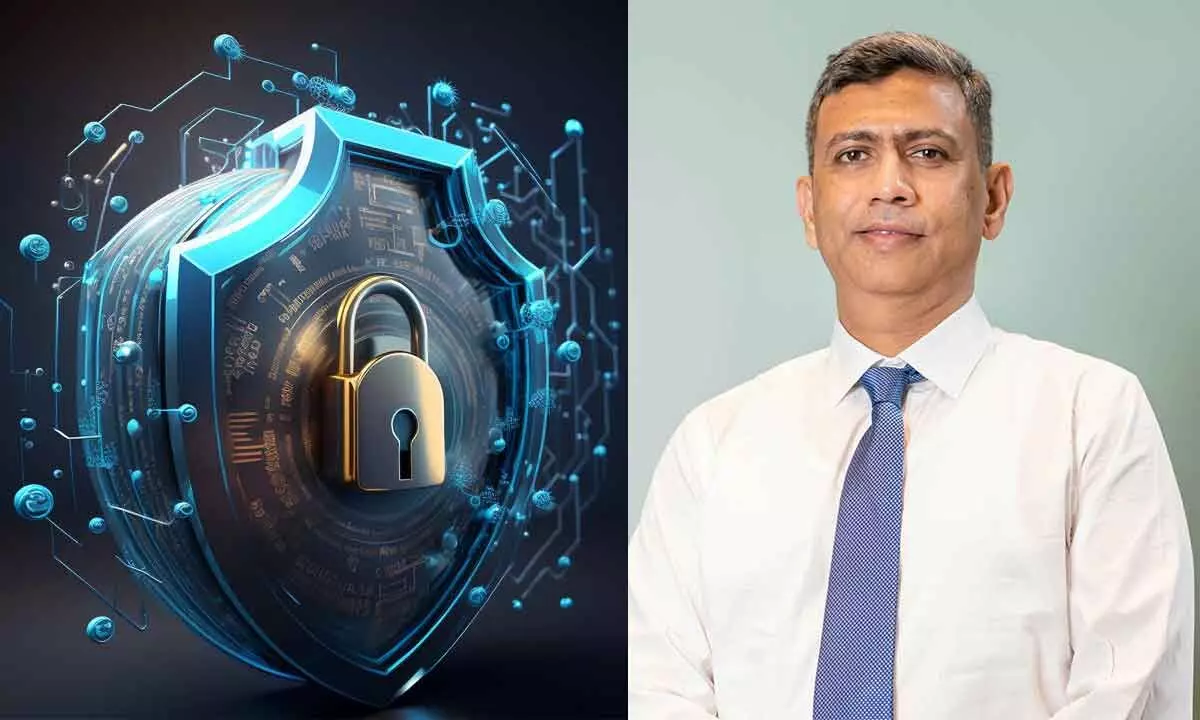2024 Cybersecurity Outlook for India: Rohan Vaidya, Regional Director of India and SAARC

Mr Rohan Vaidya foresees a challenging 2024 for India's cybersecurity with rising data breaches, ransomware, identity-based attacks, AI threats, and deepfakes.
With a population surpassing 1.4 billion and a rapidly expanding economy, India's digital footprint has made it an alluring target for cybercriminals seeking to exploit vulnerabilities.
In this insightful overview, Rohan Vaidya highlights the imminent cybersecurity challenges facing India in 2024. Anticipating a surge in data breaches, a rise in ransomware attacks, and an increased risk of identity-based attacks with the expanding cloud adoption, he also warns of new AI-based threats and the looming danger of deepfake-related cyberattacks. Mr Vaidya emphasizes the need for organizations to invest in advanced technologies, enhance awareness, and develop robust strategies to counter these evolving cyber threats.
Rohan Vaidya, Regional Director of India and SAARC
Mr Rohan Vaidya, Regional Director of India and SAARC at CyberArk, oversees sales operations and profitability. With over 18 years of experience, he excelled in roles spanning sales, marketing, technical consulting, and business management in multinational organizations across India, Southeast Asia, and the Middle East. Rohan's success in client engagement spans industries such as telecommunications, finance, publishing, media, IT, and IT-enabled services. Notably, he achieved significant business growth during his tenure as General Manager at IBM-InfoPrint Solutions, earning the Greatest Brand Builder 2009 award. Rohan, a co-author of "That’s Naut My Business," holds degrees in Engineering, Consultancy Management, and Marketing. Drawing insights from his experience, here are the predictions for the critical cybersecurity trends in India.
Data breaches expected to skyrocket
In 2023, India experienced a surge in these cyberattacks, leaving a trail of compromised personal information, disrupted operations, and eroded public trust. In 2024, we expect a sharp uptick in data breaches as the digital landscape expands, primarily because of the scale and diversity of attacks, which have impacted almost every sector, from government to healthcare to startups.
Continued acceleration in ransomware activities
Ransomware attacks are expected to surge, surpassing the alarming 91% reported in 2022. As India's digital landscape expands and digital dependencies increase, we believe that organisations will pay significantly more to enable recovery. Organisations should gear up for an intensified wave, implementing robust backup and recovery strategies and enhancing threat detection capabilities. A rise in cloud adoption could lead to a surge of identity-based attacks
The overall India public cloud services market is expected to gallop to $17.8 billion by 2027, exhibiting a formidable CAGR of 23.4% for the period spanning 2022-2027 (IDC). However, as organisations migrate their data, applications, and workloads to the cloud, the attack surface widens, providing a broader canvas for threat actors to exploit. Cloud environments, which are inherently dynamic and distributed, introduce identity and access management complexities. Organisations may also need more visibility and control over cloud resource access than on-premises environments. This can make it difficult to detect and prevent unauthorised access. Cloud environments often rely on shared credentials, such as passwords or API keys, to access resources. This can be a security risk if these credentials are compromised.
Prepare for new AI-based attacks
An equally potent threat emerges for every positive stride made in the realm of AI. The dark side of AI can manifest in sophisticated cyber threats and malicious activities fuelled by the same technologies designed to enhance efficiency, automation, and decision-making. As AI becomes more pervasive, adversaries will quickly capitalise on its capabilities, crafting new attack vectors that exploit vulnerabilities in novel ways.
Deepfakes will pose a looming threat to India's cybersecurity in 2024
As the sophistication of deepfake technology continues to advance, India is anticipated to witness a surge in deepfake-related cyberattacks in 2024. These attacks will target individuals, businesses, and even government institutions, aiming to spread misinformation, manipulate public opinion, and disrupt critical infrastructure. The financial repercussions of these attacks could be severe, potentially leading to reputational damage, loss of investor confidence, and even economic instability. To combat this growing threat, Indian organisations must invest in deepfake detection and mitigation technologies, raise awareness among their employees about the dangers of deepfakes, and develop robust cybersecurity strategies that can withstand these sophisticated attacks.
In India's vast and dynamic digital landscape, the stakes for cybersecurity have never been higher. As we gaze into the future, the trajectory appears promising and scary. The surge in data breaches, a continued acceleration in ransomware activities, the rise in cloud adoption, and the ominous spectre of AI-based attacks and deepfakes collectively paint a complex canvas. CISOs will find themselves not merely as guardians of technical fortresses but as stewards of personal and professional accountability, navigating the delicate balance between protocols and reputation in an unforgiving digital realm.
These predictions for 2024 underline the urgency for organisations to invest in cutting-edge technologies, raise awareness, and craft robust strategies that can withstand the onslaught of evolving cyber threats. The future demands a proactive, adaptive, and comprehensive approach to cybersecurity. This can help us safeguard the digital future of a nation on the rise.




















